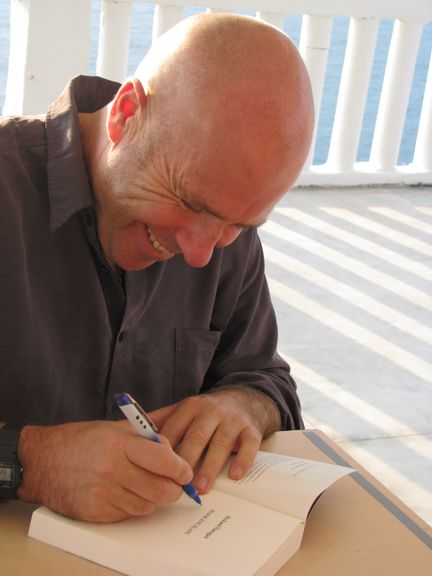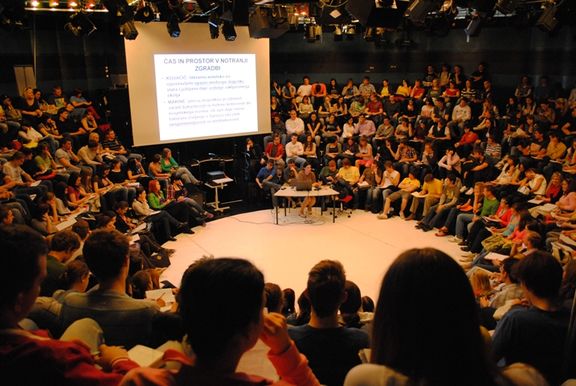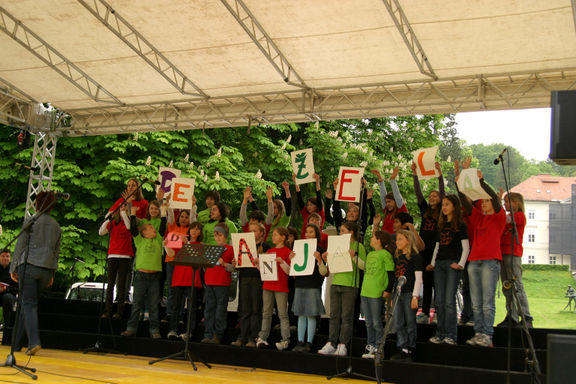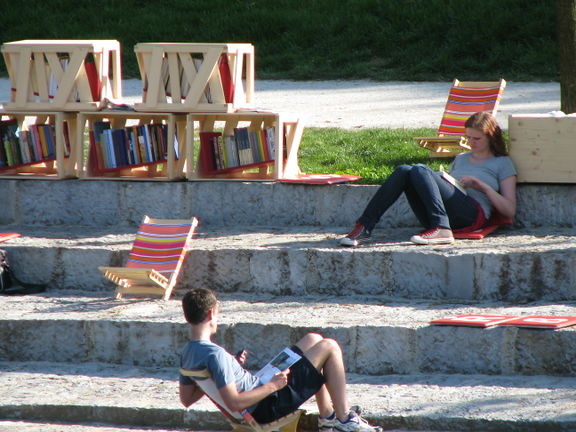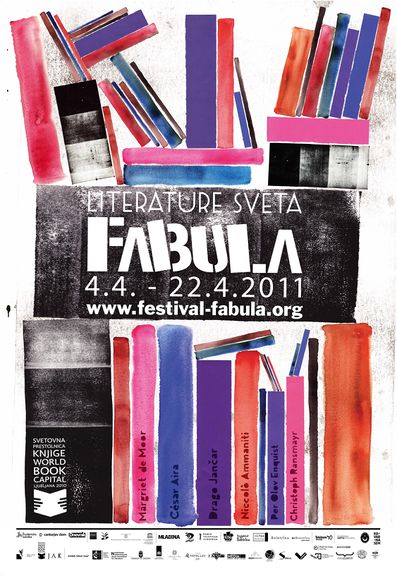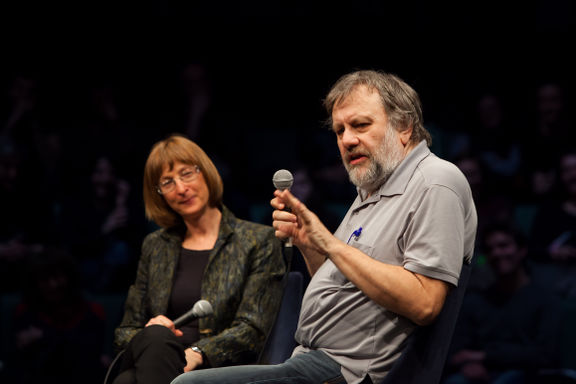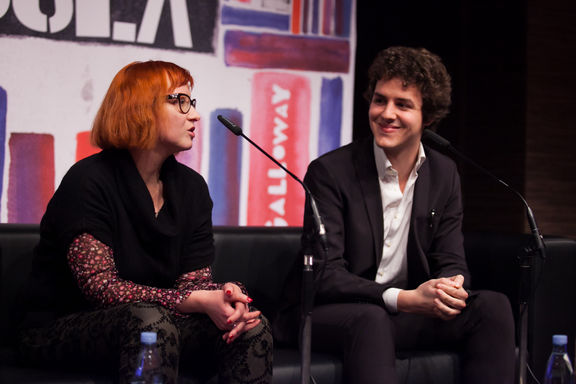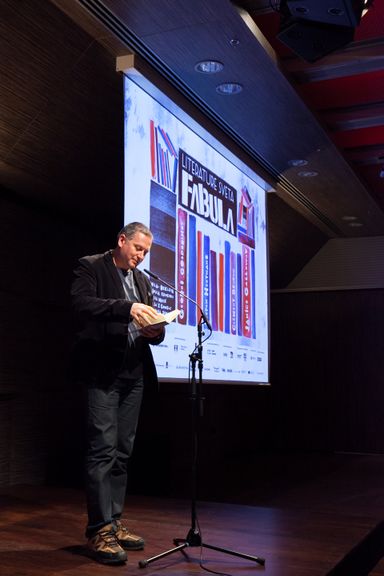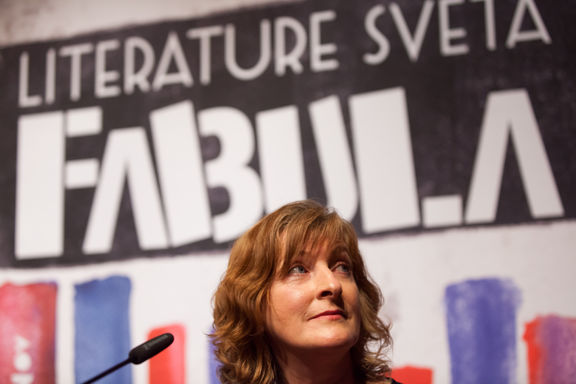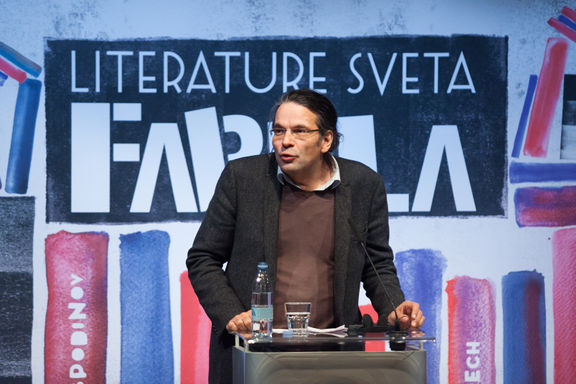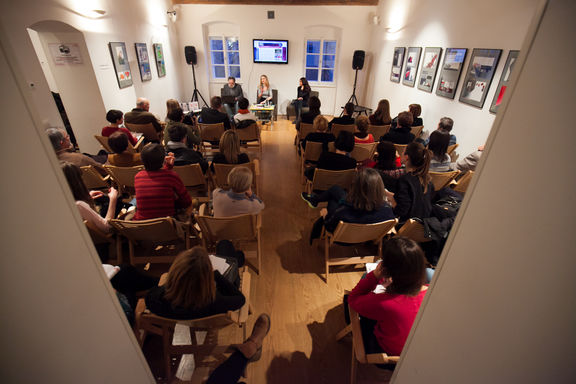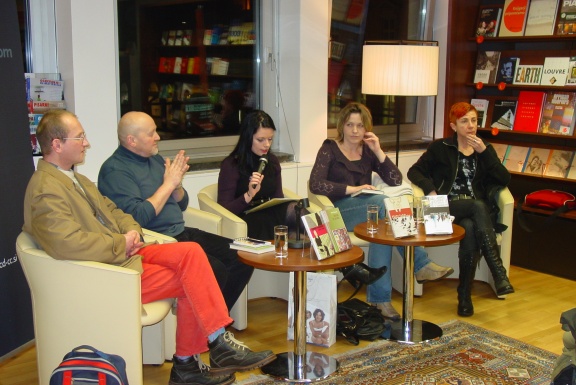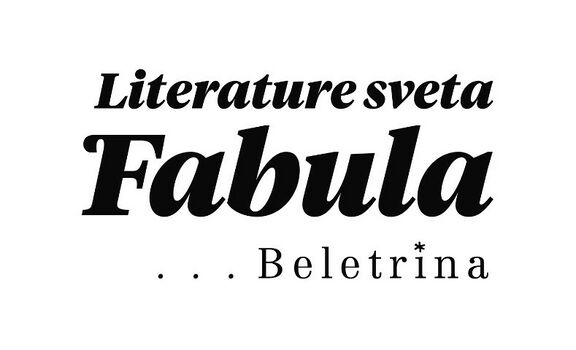Difference between revisions of "World Literatures - Fabula Festival"
(contact change) |
(new director) |
||
| Line 16: | Line 16: | ||
| dates and duration = May, entire month | | dates and duration = May, entire month | ||
| contacts = {{Contact | | contacts = {{Contact | ||
| − | | name = | + | | name = Tomaž Gerdina |
| role = Director | | role = Director | ||
| − | | email = | + | | email = tomaz.gerdina@zalozba.org |
}}{{Contact | }}{{Contact | ||
| name = Sanja Grobovšek | | name = Sanja Grobovšek | ||
Revision as of 16:44, 11 March 2011
Background
The Fabula Festival of Stories has been organised since 2004 by Študentska založba Publishing House in collaboration with Dnevnik Publishing House, and initially also by Postojnska jama turizem PLC.
The Fabula Festival takes place in several cities round Slovenia. The 3rd Fabula Festival of 2006, for example, took place in Ljubljana, Maribor, Postojna, Izola and Koper. In three weeks the festival hosted 10 world-famous writers – Milorad Pavić from Serbia, Miljenko Jergović, Krešimir Mišanović, Krešimir Bagić, and Robert Perišić from Croatia, Claudio Magris and Diego Marani from Italy, Georgi Gospodinov from Bulgaria, Kader Abdolah from the Netherlands, and Toby Litt from the United Kingdom – who presented their work at more than 20 literary events. A public discussion entitled "Dramatisation of Novels" took place at the Slovene National Theatre Drama Ljubljana, followed by the play Severni sij [Northern Lights] by Drago Jančar, performed by the Slovene National Theatre Maribor and directed by Mile Korun. Also accompanying the festival were a panel discussion about Slovene and Croatian fiction entitled Jeziki mesta [Urban Languages], and a conference on film stories. In 2007 the theme of the festival was "Death" and the festival featured some panel discussions involving artists, doctors, sociologists, and anthropologists.
World Literatures – Fabula Festivals 2010 and 2011
The 2010 edition of the Fabula was the core event of the World Book Capital Ljubljana 2010. The festival hosted Herta Müller, David Grossman, Jonathan Franzen, Michal Viewegh, Daniel Kehlmann, and Richard Flanagan and presented the new translation of their works into Slovenian language. Screenings of the films based on the works by Fabula guests took place in Kinodvor Cinema.
The festival programme brought the book and literature into the streets and squares of the city: the promenade at Breg Street in the old city centre turned into the authors' cities: the words, music, film and smells depicted the cultures of New York, Jerusalem, Prague, Vienna, and Sydney. Music concerts featured the Chili dogs, Keel Klezmer Band, Godalika, Saxophone quartet 4saxess, AHIMSAUrban band, as well as a huge choir event: eighteen Slovene choirs accompanied by the Philharmonics orchestra sang works by Slovene poets. Secondary school students wrote down Prešeren's epic Krst pri Savici [Baptism at the Savica] on the Ljubljana promenade in free typographic forms, accompanied by the rap authors Boštjan Gorenc - Pižama and Klemen Klemen.
The events of the 2010 festival were organised in Ljubljana (Cankarjev dom, Kinodvor Cinema, the City Museum of Ljubljana, the Slovene Ethnographic Museum, and Beletrina Bookshop); in Maribor (Synagogue Cultural Centre); Ptuj (Ivan Potrč Library); Ribnica (Mikl House Library); Koper (Dom knjige Bookshop); and Trieste, Italy.
From 4 to 22 April 2011 the festival World Literatures – Fabula 2011 will host César Aira, Niccolò Ammaniti, Per Olov Enquist, Cristoph Ransmayr, Drago Jančar and Margriet de Moor. Again the festival will present a fabric of talks, books and the related films, sounds, fairy tales and images of the writers' countries. The topic of Islam will be dealt with by connoisseurs from Slovenia, Bosnia and Herzegovina and Turkey, the latter being the country in focus within The International Within the Local, a poetry and translation project. The international symposium focuses on Edvard Kocbek, whose susceptibility to complexity and paradoxes of human psychological structure and social existence often made him a victim of the ideologically uniform times. The Fabula Award will be awarded, too.
The venues of the Fabula 2011 will include hospitals, homes for the elderly and crisis centres, as well as the life in the street, in collaboration with the initiative of the homeless, The Kings of the Street)[Kralji ulice] magazine.



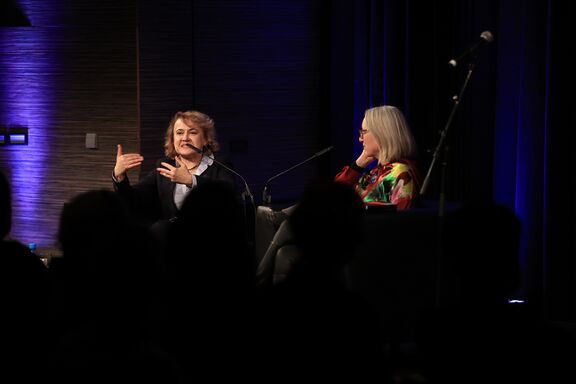
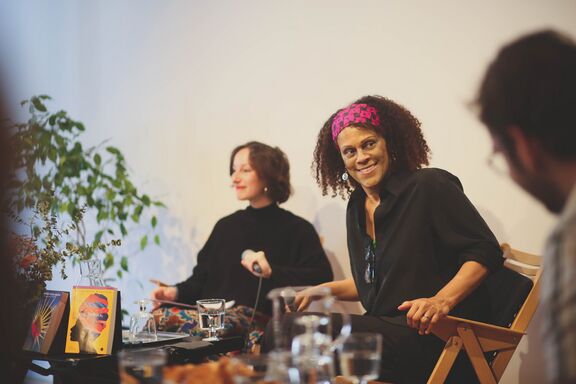
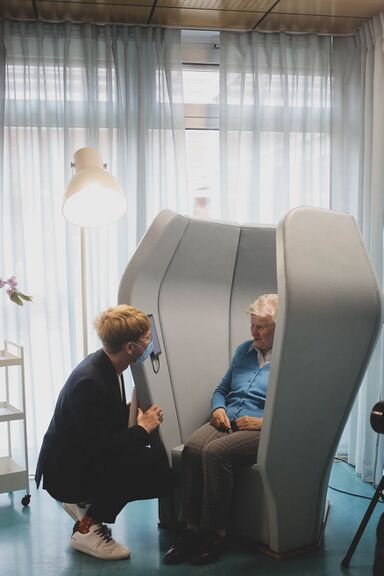
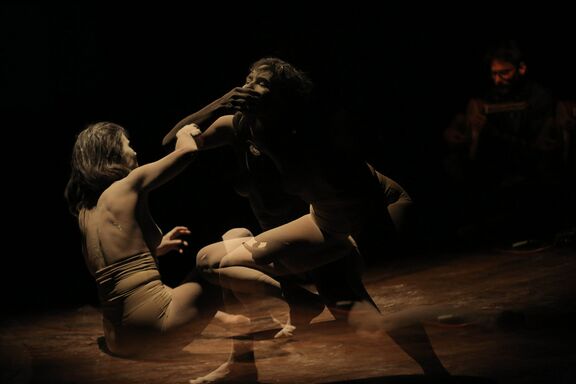
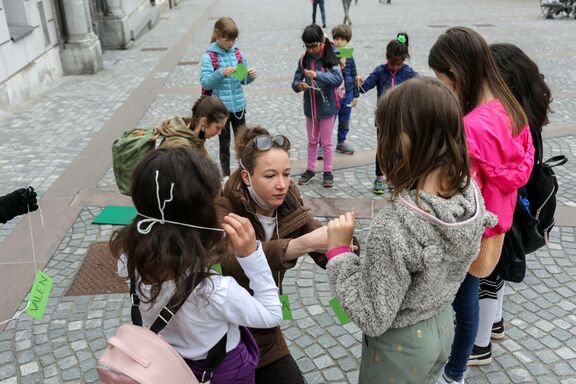
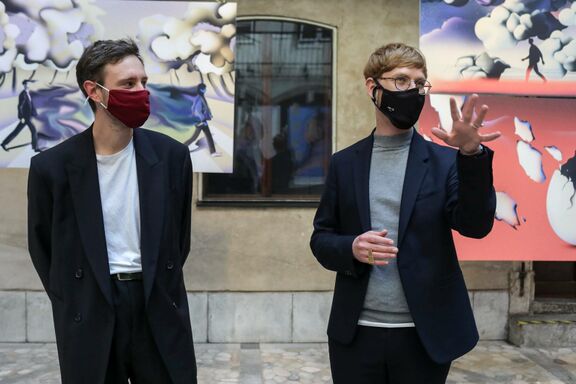
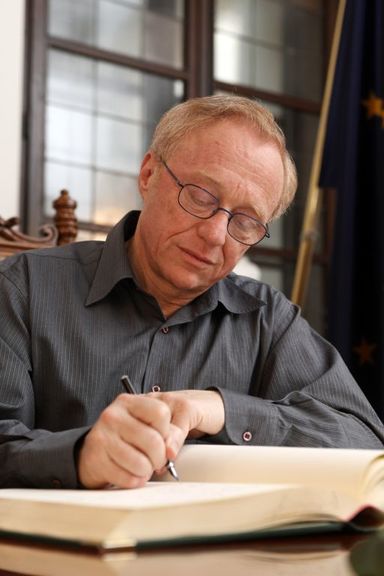
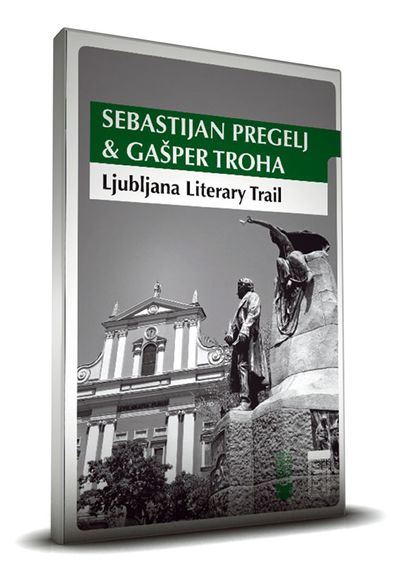
![Niccolò Ammaniti's Jaz in ti [You and Me] book cover, 2010](/images/thumb/7/74/Fabula_Festival_-_11.jpg/455px-Fabula_Festival_-_11.jpg)
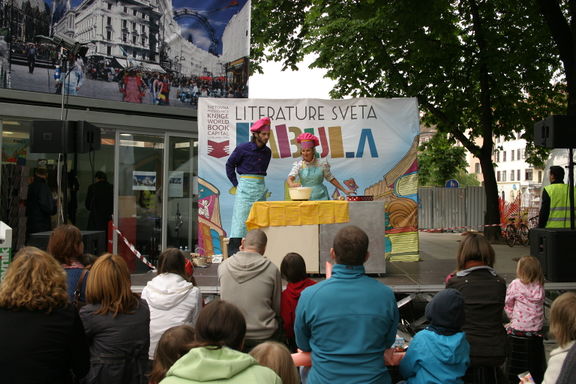
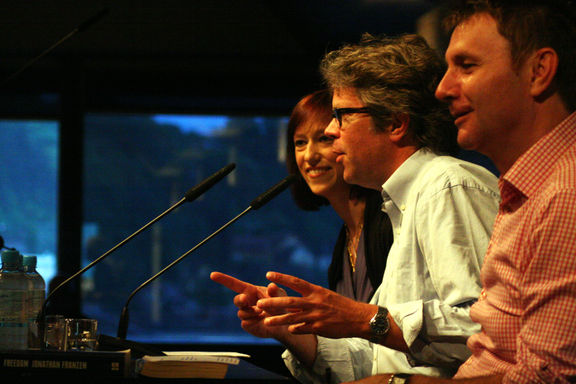
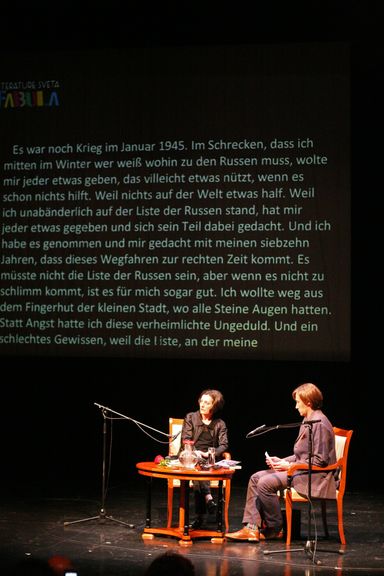
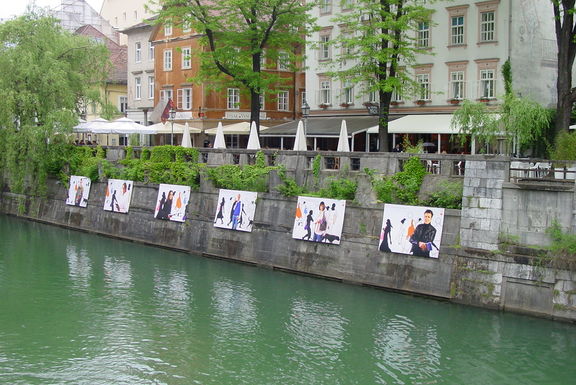
![Prešeren's Coat, by Andreja Brulc, art installation using passages from the poet's longest poem Krst pri Savici[Baptism at Savica] on a new robe dressing Prešeren's monument, World Literatures - Fabula Festival, 2010](/images/thumb/6/64/Fabula_Festival_2010_Preseren%27s_Coat_Photo_Mojca_Pisek.jpg/382px-Fabula_Festival_2010_Preseren%27s_Coat_Photo_Mojca_Pisek.jpg)
